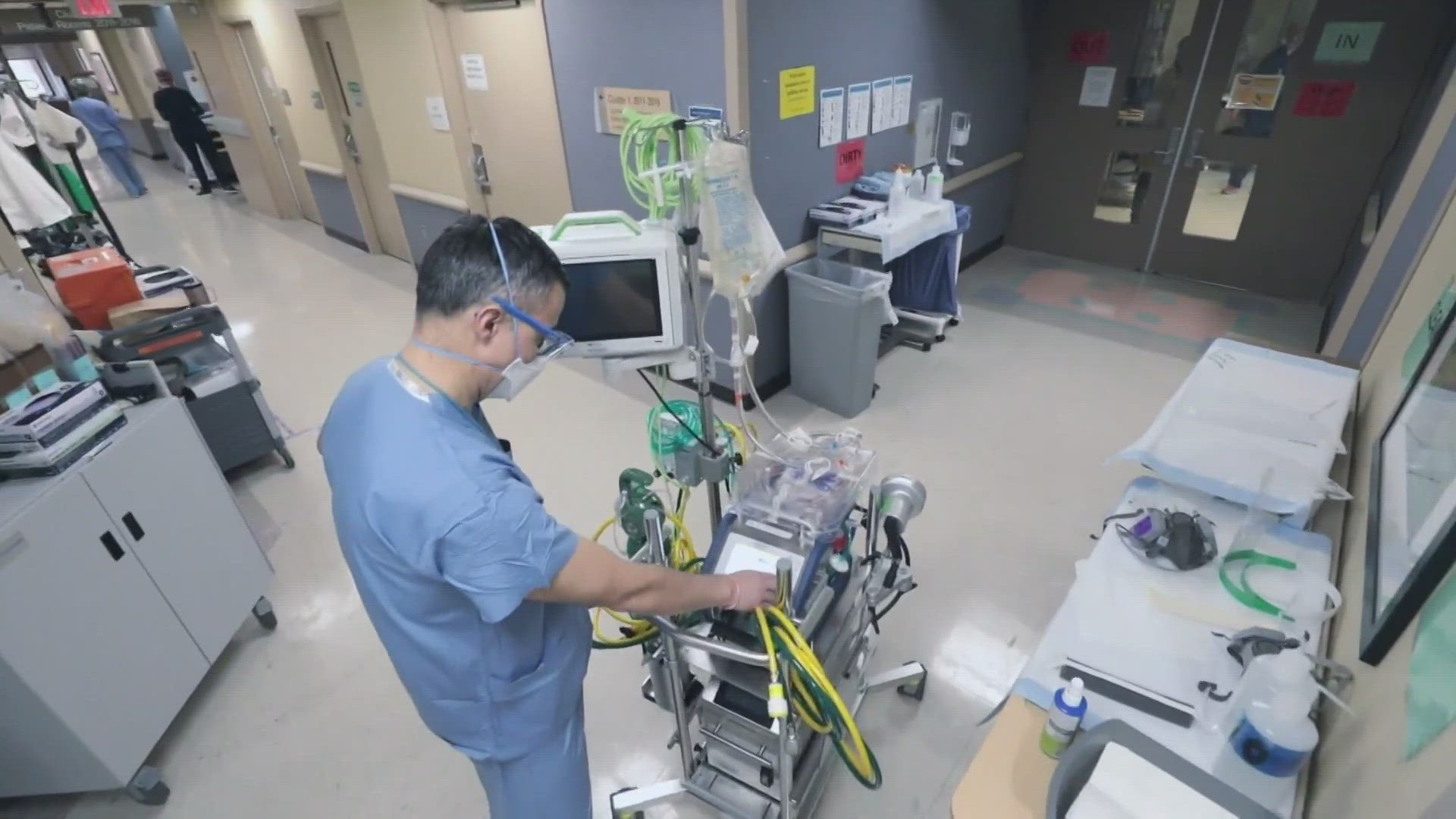SEATTLE — The Washington State Hospital Association (WSHA) released data gathered from the state’s hospitals Monday, which shows that in 2022, hospitals operated at a loss.
WSHA put together an income statement and stated Washington’s hospitals cumulatively have been operating at a loss for the past two years.
“I always want to remind people that 2021 was not a great year,” said WSHA CEO Cassie Sauer. “If you look back in your memory, it was a pretty rough year for healthcare, so the fact that 2022 is worse is quite alarming.”
Although revenue increased 5% year over year, total operating expenses increased by 9% in that same time period, leading to growing losses.
As a large provider of Medicaid beneficiaries, Multicare CEO Bill Robertson points to lower Medicaid reimbursements as a source of strain on its finances.
“All of our hospitals in 2022 lost money from an operating/margin basis, and our aggregate loss was $286 million. Clearly, not sustainable over time,” he said. “We’ve been lucky to have a stable budget sheet in the near term, but it will not last.”
Robertson and WSHA are now calling for state lawmakers to raise the bar for Medicaid reimbursements, bringing them up to the level of the Medicare rate, which pays about 80% of the cost of care. Potential legislation could also create a new directed payment program that will allow Washington to bring in more federal matching dollars to the state’s Medicaid program.
If this legislation passes, WSHA says it’ll be a year before Medicaid payments would be increased.
This plan would only bring in an additional $1 billion, which still falls short of the more than $2 billion in losses the state’s hospitals have accrued.
However, WSHA CEO Cassie Sauer pointed to California as a grim example of where Washington could be heading. She told the story of how during the pandemic, ambulances in California were told not to transport patients if their survivability was low due to staffing ratios.
Sauer says Washington’s hospitals are already seeing services being rolled back and limits on patient admissions, and if action isn’t taken soon, hospitals could be shut down. Sauer says this is unacceptable.
“Patients are not getting knees replacements, heart valve replacements, colostomy reversals, slow cancer tumor removals. Those are huge impacts on patients’ health, both mental and physical health,” Sauer said. “If hospitals cannot allow access to care, that is the biggest adverse event a patient can ever have.”

